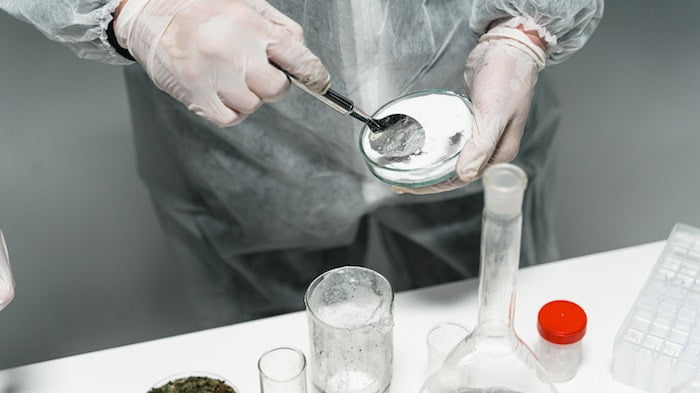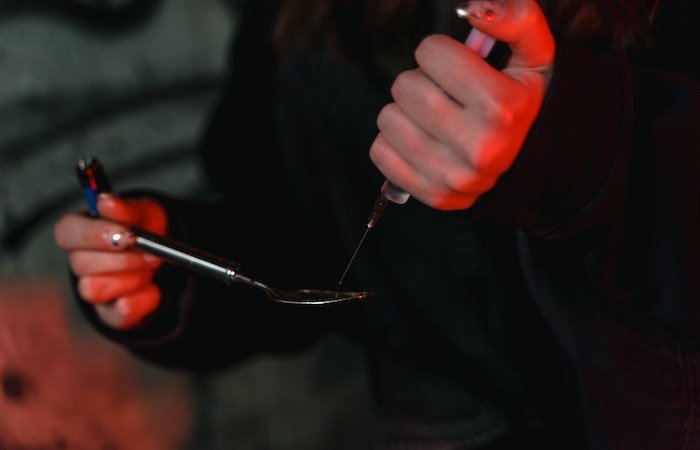Drug and Alcohol Rehab in Sheffield
Quick Links for help with addiction in Sheffield
- How Can I Convince a Loved One to Access Drug & Alcohol Rehab in Sheffield?
- What If I Suffer from Multiple Conditions Alongside Addiction at Drug Rehab & Alcohol Rehab in Sheffield?
- What is Inpatient Drug & Alcohol Rehab in Sheffield?
- What is Outpatient Drug & Alcohol Rehab in Sheffield?
- How Long Does Drug Rehab & Alcohol Rehab in Sheffield Last?
- How Much Does Drug Rehab & Alcohol Rehab in Sheffield Cost?
- Is Drug & Alcohol Rehab Accessible Through the NHS in Sheffield?
- What Types of Therapies are Offered at Drug & Alcohol Rehabs in Sheffield?
- What Happens After Drug & Alcohol Rehab In Sheffield?
- How Can I Refer Myself Into Drug Rehab & Alcohol Rehab in Sheffield?
It is well-known that drug and alcohol abuse is one of the biggest public health issues of the modern age and often needs proper drug and alcohol rehab treatment to address.
Drug and alcohol addiction can devastate the lives of people from all walks of life, as well as the loved ones around them.
Here in Sheffield and the greater South Yorkshire area, we are all too familiar with the problems [1] that substance abuse can cause and the need for drug and alcohol rehab that exists.
Here at Rehab Recovery, we provide drug and alcohol rehab referrals for anyone struggling with drug or alcohol addiction, no matter what substances are involved.
Whether you are struggling with alcohol, illegal drugs or even behavioural addictions, we are here to help you access support at a Sheffield drug and alcohol rehab clinic that suits your own personal needs and gives you the best chance of completing your drug rehab or alcohol rehab treatment [2] and achieving lasting sobriety.
If you’re ready to receive addiction treatment at a drug and alcohol rehab in Sheffield, call our team today on 0800 088 66 86
How Can I Convince a Loved One to Access Drug & Alcohol Rehab in Sheffield?

Group therapy chairs at a drug & alcohol rehab in Sheffield
Some people can stay in denial about their addiction for years before seeking help from a drug and alcohol rehab in Sheffield.
This is unfortunate, because the longer they stay in active addiction the greater the potential for harm to themselves as well as others, and the more intense the drug and alcohol rehab treatment will be needed.
If you are concerned about the addiction of someone you know and think they may need the support of a drug and alcohol rehab centre, the best course of action may be to arrange an intervention.
Traditionally, an intervention involves a person’s loved ones and/or family gathering in a room with the person to communicate their feelings and encourage the person to get help at rehab.
This is ideally done with the help of a trained intervention counsellor, who can mediate the session and make sure it is measured and productive, providing advice about local drug and alcohol rehab treatment options in Sheffield when it is necessary.
It is very normal for the person to get defensive and for the conversations to get heated, which is why is good to have an independent mediator.
An alternative to this kind of intervention is the CRAFT (Community Reinforcement And Family Training) Method, [3] which uses positive reinforcement to encourage the person to change their behaviour for the better and seek drug and alcohol rehab treatment of their own volition.
We can provide advice on how to stage an intervention using either of these methods, as well as how to arrange the services of an independent intervention counsellor familiar with the drug and alcohol rehab services available in Sheffield.
If you want help holding an intervention in order to prepare a loved one for rehab treatment in Sheffield, call our team on 0800 088 66 86
What If I Suffer from Multiple Conditions Alongside Addiction at Rehab in Sheffield?

Hands holding a flower at a rug & alcohol rehab in Sheffield
Co-occurring mental illnesses are very common in those who are living with addiction and are widely encountered in drug and alcohol rehab clinics in Sheffield and across the UK.
- Anxiety disorder
- Depression
- Bipolar disorder
- Schizophrenia
- Eating disorders
- Borderline Personality Disorder (BPD)
- Post-Traumatic Stress Disorder (PTSD)
- Obsessive-Compulsive Disorder (OCD)
- Bipolar disorder
According to NESARC data, 28.6% of people with a current alcohol use disorder diagnosis had at least one personality disorder like bipolar disorder.
Before diagnosis, these problems can easily exacerbate a drug or alcohol addiction and may have even been the main factor in the addiction to begin with.
At drug and alcohol rehab in Sheffield, you will be under the care of a highly-qualified and experienced mental health team.
This means that any mental health problems that you are experiencing can be identified, diagnosed and treated at drug and alcohol rehab.
Rehabs in Sheffield can also help you manage coexisting mental health issues and illnesses alongside directly treating drug or alcohol addiction.
A team of dedicated trained professionals and mental health counsellors can treat you with specialised psychiatry in mind, to offer thorough psychiatric rehabilitation alongside physical drug and alcohol rehab.
Psychiatric treatment from trained drug and alcohol rehab professionals can assist you in treating any underlying mental health conditions and in getting rid of the reasons for your addiction whilst at rehab in Sheffield.
To learn more about how your mental health can be supported whilst undergoing addiction treatment at rehab in Sheffield, call our team today on 0800 088 66 86
What is Inpatient Drug & Alcohol Rehab in Sheffield?

A living room at a drug and alcohol rehab
It is widely accepted that residential rehab is the most effective treatment for drug and alcohol addiction, but why is that?
Well, there are a number of different reasons.
For one thing, most people find the safe, tranquil environment of rehab provides a welcome respite for those whose lives have become chaotic and unmanageable due to addiction.
The main reason that drug and alcohol rehab is so effective is that it is the only place where every aspect of addiction treatment can be combined into one treatment plan, within the same facility.
During a patient’s time at drug and alcohol rehab in Sheffield, they will receive high-quality professional help from drug and alcohol detox clinicians, rehab psychologists and behavioural specialists, all of whom will help them with different aspects of their recovery.
Trying to arrange all of these different types of care and treatment outside of the drug and alcohol rehab environment would be a logistical impossibility, not to mention much more expensive.
We know that private rehab is a considerable cost, but think about how much all of these treatments would cost separately.
On top of that, think about the costs – both financially and personally – of staying in active addiction for the rest of your life.
When you take all of this into account, a course of treatment at drug and alcohol rehab may be the best investment that you ever make.
Addiction is not considered a ‘choice’ or ‘moral failing’ on behalf of the addiction sufferer – drug and alcohol rehab is about treating the disease of addiction.
To get the most out of residential drug and alcohol rehab in Sheffield, contact our team today on 0800 088 66 86
What is Outpatient Drug & Alcohol Rehab in Sheffield?

Two people discussing alcohol addiction at a drug and alcohol rehab in Sheffield
Outpatient drug and alcohol rehab treatment in Sheffield is any form of drug and alcohol rehab care that does not require the patient to stay overnight; there is no 24-hour supervision.
This means the patient attends a local drug and alcohol rehab centre in Sheffield in the daytime, but they do not leave their usual place of residence to pursue recovery.
Outpatient drug and alcohol rehab treatment is available across a range of settings, from rehab facilities to specialist outpatient centres.
They tend to offer various types of rehab therapy (group, family and individual) as well as education on mental health and substance use.
This treatment type can be just as helpful as inpatient drug and alcohol rehab in some cases. One study found that there were comparable outcomes between the two. [4]
Yet, we must keep in mind that most people with severe addiction issues will go to inpatient drug and alcohol rehab for round-the-clock care. This means outpatient treatment is not as effective as residential rehab for everyone.
Find your way towards sobriety at an outpatient rehab programme in Sheffield by giving our team a call on 0800 088 66 86
How Long Does Drug & Alcohol Rehab in Sheffield Last?

A diary and a pencil at a drug & alcohol rehab in Sheffield
Drug rehab and alcohol rehab usually lasts around 28 days, although in some extreme cases, patients may stay in drug and alcohol rehab for up to 90 days.
If the substance from which you are withdrawing requires a detox, this will take up the first 7 to 10 days of your time at drug and alcohol rehab.
Therapy, treatment and addiction education will make up the remaining weeks at their chosen drug and alcohol rehab clinic in Sheffield.
In some cases, a patient may have planned for a 28-day detox, but their detox takes longer than expected, perhaps due to heavy substance abuse prior to entering the rehab clinic.
If this is the case, it could have a knock-on effect on the length of your overall drug and alcohol rehab treatment time.
Generally speaking, drug and alcohol rehab should not take more than one month from admission to discharge.
Standalone detox usually takes between a week and 10 days, but this is not considered drug and alcohol rehab, as it doesn’t involve any other kind of therapy or treatment.
To get a clearer idea of just how long your time at a rehab clinic in Sheffield may last, call us on 0800 088 66 86
How Much Does Drug & Alcohol Rehab in Sheffield Cost?

The exact cost of drug and alcohol rehab will vary depending on the specific rehab clinic, as well as the specific treatment options that you choose.
For example, if you were to go with a full 28-day course of residential drug and alcohol rehab, you should expect to pay around £8,000-£12,000 for a single-person room, and around £6,000 for a multiple-occupancy room (a place in a dorm).
If you were to choose to do a standalone 10-day detox at a drug and alcohol rehab clinic, you could expect to pay between £3,000-£6,000 for a single room, or £2,000-£4,000 for a multiple-occupancy room.
You could reduce this cost even further to around £1,500 by doing a home detox instead of at drug rehab and alcohol rehab.
However, only certain eligibility criteria will apply.
Insurance For Drug Rehab & Alcohol Rehab in Sheffield and near Sheffield
Private medical insurance can be used to pay some of the costs of drug and alcohol rehab in Sheffield.
Before budgeting for rehab, make sure you check your insurance policy, as it may not be compatible with a drug and alcohol rehab stay.
Some insurance companies offer to pay a portion of the drug and alcohol rehab treatment costs, which is known as coinsurance.
Certain aspects of drug and alcohol rehab treatment may not be funded, such as the use of leisure facilities. Other companies offer to pay for one treatment only (e.g., therapy).
For a clearer answer about the exact cost of your rehab treatment in Sheffield, call us today on 0800 088 66 86
Is Drug & Alcohol Rehab Accessible Through the NHS in Sheffield?

Here at Rehab Recovery, we only refer people to private drug rehab and alcohol rehab clinics in Sheffield.
This means that, whichever drug and alcohol rehab clinic you end up getting treated at, there will be a cost involved in your care.
It will be a significant financial investment and we understand that you may not be able to afford private rehab treatment right now.
If this is the case, there is always the option of pursuing drug and alcohol rehab treatment that is free through public services such as the NHS.
Sheffield City Council [5] offer free government advice for substance abuse prevention, providing both educational resources and signposting for drug and alcohol rehab.
You can find free community mental health services [6] that can offer help with everything from alcohol abuse to drug detoxification.
Below is a list of other organisations that offer free support for addiction and drug and alcohol rehab in and around Sheffield:
1. Addaction Sheffield
Address: 42 Sidney St, Sheffield City Centre, Sheffield S1 4RH
Telephone: 01142 536 830
Website: http://www.addaction.org.uk/services/addaction-sheffield-dip-service
2. C G L Change Grow Live
Address: 44 Sidney St, Sheffield City Centre, Sheffield S1 4RH
Telephone: 01143 050 500
Website: https://www.changegrowlive.org/the-corner-sheffield/info
3. Centenary House CAMHS
Address: Heritage Park, 55 Albert Terrace Rd, Sheffield S6 3BR
Telephone: 01143 053 218
Website: https://www.sheffieldchildrens.nhs.uk/contact-us/maps/
You can also reach out to a number of helplines, including Mind UK, YoungMinds, Rethink Mental Illness, Samaritans, We Are With You, Turning Point and Papyrus.
A local NHS Foundation Trust and the NHS website [7] both provide free, reliable information and rehab guidance.
When it comes to funding, these are the two basic types of drug and alcohol rehab – private and public, and each comes with both advantages and disadvantages.
The main advantage of pursuing public-funded addiction treatment in Sheffield is that you will likely not need to pay for your drug and alcohol rehab treatment, or that any costs involved will be minimal.
The main disadvantage is that you will probably have to stay on a waiting list for an indeterminate period of time before actually starting drug and alcohol rehab treatment, sometimes for months.
Nearly two-thirds (64%) of people have a wait of more than four weeks for NHS therapy. [8]
The main drawback of going for private drug rehab and alcohol rehab is, obviously, that there will be a significant cost involved.
However, the advantages to private drug and alcohol rehab treatment are that you will likely receive a high standard of accommodation and care and, crucially, you can start your treatment straight away once you have been referred to the appropriate rehab clinic.
Starting drug and alcohol rehab treatment with a quick turnaround can be a big help to anyone who is in a pattern of severe substance abuse.
This is one of the reasons that we recommend going for private drug and alcohol rehab if you have the funds to do so.
During your phone consultation, we can discuss various ways in which you might be able to make drug and alcohol rehab in Sheffield more affordable.
We can also provide practical advice on how to take care of your regular commitments and responsibilities while you are away at drug and alcohol rehab in Sheffield.
For more help and guidance choosing between public and private rehab in Sheffield, give our team a call on 0800 088 66 86
Do I Need a Detox Programme or Alcohol Withdrawal Treatment in Sheffield?

Doctor holding clipboard at a drug and alcohol rehab in Sheffield
Coming off any substance at drug and alcohol rehab will involve going through a period of withdrawal.
However, not all addictions will require a detox programme at drug and alcohol rehab in Sheffield.
In the context of rehab and addiction treatment, the term detox is used to describe a medical process that manages a person’s withdrawal from a problematic substance.
Specifically, it is used in the case of heroin, alcohol, benzodiazepines and other physically addictive substances.
This is because all of these substances can present severe withdrawal symptoms that need to be properly managed by professionals at drug and alcohol rehab.
Specific medications are used to alleviate the physical symptoms and anxiety associated with withdrawal, as well as reduce the risk of serious physical side effects that can be experienced at drug and alcohol rehab, such as seizures.
Other illicit substances – such as cannabis, cocaine, crack cocaine and ketamine – do not require detox or the use of withdrawal medications at drug and alcohol rehab, as they are not physically addictive.
Nevertheless, it is preferable that you are monitored by professionals as you withdraw, due to the high risk of unpleasant and uncomfortable psychological withdrawal symptoms, which personal drug and alcohol rehab support may be key to treating.
To reiterate, addiction to any substance can be treated at drug and alcohol rehab.
However, there are certain substances for which a medically supervised detox is essential.
This includes prescription opioids, illicit opiates, benzodiazepines and alcohol.
You should never try to withdraw from any of these substances on your own or go ‘cold turkey’, as this can be dangerous and even deadly.
If you’re ready to beat your addiction with the help of a rehab in Sheffield, call us on 0800 088 66 86
Alcohol Rehab in Sheffield

Walking in a woodland during drug & alcohol rehab in Sheffield
Alcohol is unfortunately still a major part of British nightlife and pop culture in general.
This is despite the fact that alcohol is directly responsible for thousands of deaths in the country every year, as well as having an indirect effect on the lives of millions of others.
As well as being the most widely available drug, it is also one of the most treated at drug and alcohol rehab and one of the deadliest.
If your drinking has become a problem, the best thing that you can do for yourself is to seek treatment at an alcohol rehab in Sheffield.
Within the same drug and alcohol rehab facility, you will be able to go through a medically assisted detox, get help through therapy, and move into a positive future after rehab with the help of a comprehensive relapse prevention plan.
There are hundreds of alcohol rehab clinics around the UK, and a great deal here in South Yorkshire.
If you would like us to provide an alcohol rehab referral or just want some advice, please reach out to us and speak with a member of the Rehab Recovery team.
Our team are highly trained, sympathetic and discreet – whatever you share with us will be treated with strict confidence.
Start your alcohol addiction treatment at rehab in Sheffield by calling us today on 0800 088 66 86
Rehab for Cocaine in Sheffield

Cocaine has become something of an open secret amongst the bars and clubs of the UK, making it one of the most common addictions treated at UK rehab services.
In certain social circles cocaine use is rampant and is not much more stigmatised than drinking a pint of beer.
Unfortunately, cocaine dependence can soon become problematic for many people, as it is a potent, expensive drug which is also highly addictive and requires extensive cocaine rehab support to treat.
Cocaine rehab does not require a medical detox, as would be necessary with heroin or alcohol.
Rather, rehab staff will monitor your psychological well-being as you withdraw, before starting you on a comprehensive treatment plan to address the underlying issues that have driven you to cocaine abuse in the first place.
Through a combination of various therapies and rehab treatments, you can achieve long-term recovery from cocaine addiction and manage your cravings effectively in the future.
Staying off cocaine does not require any kind of substitutive medication, though medication could be used at drug and alcohol rehab to treat co-occurring conditions like depression.
You just need to commit to your rehab treatment programme and stay proactive in your own recovery.
Start your cocaine addiction treatment at a drug rehab in Sheffield by calling us on 0800 088 66 86
Rehab for Heroin in Sheffield

The effects of heroin abuse can be seen first-hand on the streets of every major city in the UK.
The highly potent opiate has the ability to ruin the lives of those who use it, as well as everyone around that person, often needing professional rehab treatment to address.
Aside from the severe health risks involved, heroin use also comes with unbearable withdrawal symptoms.
Heroin abuse is not easy to treat, but the best place to do so is at a residential drug and alcohol rehab.
A proper drug & alcohol rehab in Sheffield will have the facilities for a medically supervised heroin detox, where heroin withdrawal symptoms can be medicated and managed effectively.
This usually involves the use of Subutex during detox, before moving on to methadone as a transition from heroin use whilst at rehab.
Once you have got through detox, you will be able to engage in a programme of comprehensive heroin rehab treatment and therapy.
Heroin addiction can seem impossible to escape at times, but with the right treatment at a professional drug and alcohol rehab, recovery is always possible.
Start your heroin addiction treatment at a drug rehab in Sheffield by calling us on 0800 088 66 86
Rehab for Cannabis in Sheffield

Cannabis is one of the most widely used drugs in the UK, along with alcohol and cocaine, despite it being illegal.
Unfortunately, there are still some people who insist on perpetuating the myth that cannabis use is harmless and that it is not possible to get addicted to it.
Neither of these things are true. Long-term cannabis use can have a massively detrimental effect on a person’s health and wellbeing and can need rehab treatment to properly overcome.
A recent study [9] identified the adverse side effects of regular use of cannabis during adolescence and into adulthood can include:
- Dependence requiring rehab support
- An increased risk of motor vehicle crashes
- Impaired respiratory function
- Cardiovascular disease
- Mental health issues
It is not possible to die of a cannabis overdose – however, this certainly does not mean that there is no harm in smoking cannabis and that cannabis rehab is not extremely useful.
Cannabis use disorder increases your risk of debilitating mental illnesses, such as depression and anxiety disorders, as well as causing users to become socially withdrawn, paranoid and generally lacking in motivation.
Cannabis addiction is best treated at drug and alcohol rehab, where you can focus on the underlying issues that may be causing you to want to use cannabis so often.
You will not have to go through detox – instead, you can spend the bulk of your time at drug and alcohol rehab focusing on your mental health and wellness, which in turn will diminish your desire to turn to cannabis use as a form of escapism.
While medications like Selective Serotonin Reuptake Inhibitors (SSRIs), especially Sertraline, can help ease anxiety symptoms, it is helpful to prevent anxiety and other effects that cannabis might be causing you by cutting cannabis out of your life altogether with the help of drug and alcohol rehab.
Start your cannabis addiction treatment at a drug rehab in Sheffield by calling us on 0800 088 66 86
What Types of Therapies are Offered at Drug & Alcohol Rehab in Sheffield?

Family therapy for alcohol addiction at a drug & alcohol rehab in Sheffield
There is no such thing as a ‘typical’ drug and alcohol rehab therapy plan, as everyone experiences addiction differently, and requires different kinds of help to deal with their own issues.
Addiction is a very complex condition, and so it makes sense that the types of therapy on offer at drug and alcohol rehab are wide and varied.
The National Institute for Health and Care Excellence [10] establishes criteria to ensure that all treatments given by healthcare practitioners satisfy quality standards.
- Cognitive Behavioural Therapy (CBT)
- Dialectical Behaviour Therapy (DBT)
- Brief interventions
- Motivational Interviewing (MI) & Motivational Therapy (MET)
- Holistic therapies (e.g., music therapy, art therapy, mindfulness, meditation, yoga, acupuncture, nutritional counselling, equine therapy)
- Group Therapy & group psychotherapy
- Individual Therapy
- Family Therapy
- Co-Dependency Treatment
- Twelve-Step Facilitation Therapy (TSF)
- Acceptance and Commitment Therapy (ACT)
- Eye Movement Desensitization and Reprocessing (EMDR)
- Rational Emotive Behaviour Therapy (REBT)
Experience your ideal treatment programme at an alcohol & drug rehab in Sheffield by giving our team a call on 0800 088 66 86
What Happens After Drug & Alcohol Rehab In Sheffield?

Group therapy at a drug & alcohol rehab in Sheffield
Although getting through rehab is a great achievement for anyone, it is always potentially challenging going back out into the world after rehab treatment and re-adjusting to a new life in sobriety.
A committed aftercare service will keep you on the right track after you leave drug and alcohol rehab treatment.
You’ll receive frequent check-ins and support from drug and alcohol rehab staff as you navigate your new life in recovery, to make sure you’re keeping any relapse triggers in check and managing the temptations of everyday life.
You will also be helped to come up with a relapse prevention plan prior to leaving the drug and alcohol rehab clinic.
It should not be seen as a sign of weakness if you do relapse as addiction recovery is not a linear path.
Relapsing is common and occurs between 40% to 60% of adults trying to recover from addiction through drug and alcohol rehab.
- Alcoholics Anonymous [11]
- Narcotics Anonymous [12]
- SMART Recovery [13]
- Alateen [14]
- Al-Anon Family Meetings [15]
- Further outpatient treatment at a local drug and alcohol rehab clinic or GP
- Sober living houses
To learn more about how a rehab in Sheffield will support you to avoid relapse, call us on 0800 088 66 86
How Can I Refer Myself Into Drug & Alcohol Rehab in Sheffield?

Man with phone inquiring about drug & alcohol rehab in Sheffield
For more information on detox services and drug and alcohol rehab options in Sheffield, contact Rehab Recovery today on 0800 088 66 86.
When you contact us, we shall outline a variety of drug and alcohol rehab treatment options that are available to you in and near Sheffield.
This includes both private and publicly available drug and alcohol rehab services in Sheffield.
All drug and alcohol rehabs must be registered and audited by the Care Quality Commission (CQC). [16]
Rehab Recovery has rehab services across Sheffield and the UK, including Dronfield, Chapeltown, Rotherham, Chesterfield, Staveley, Barnsley, Worksop, Bentley, Manchester, Liverpool and Leeds.
If you are ready to take that important first step away from addiction, reach out for drug rehab and alcohol rehab support today.
References for Drug & Alcohol Rehab in Sheffield
[1] https://democracy.sheffield.gov.uk/documents/s23773/Alcohol%20Strategy%202.pdf
[3] https://pmc.ncbi.nlm.nih.gov/articles/PMC4394369/
[4] https://pmc.ncbi.nlm.nih.gov/articles/PMC4152944/
[5] https://www.sheffield.gov.uk/social-care/adults/drugs-alcohol-support
[6] https://www.england.nhs.uk/mental-health/adults/cmhs
[7] https://www.nhs.uk/Live-well/addiction-support/drug-addiction-getting-help/
[9] https://www.thelancet.com/journals/lancet/article/PIIS0140-6736(09)61037-0/fulltext?cc=y=
[10] https://www.nice.org.uk/guidance/health-protection/drug-misuse
[12] https://meetings.ukna.org/meeting/search
[13] https://uk.meetings.smartrecovery.org/meetings/?location=Sheffield&coordinates=50


